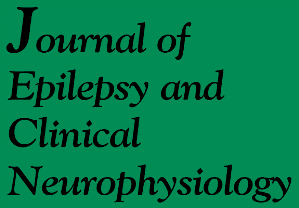Temporal lobe epilepsy (TLE), the most frequent type of focal epilepsy in adults, is characterized by resistance to pharmacological treatment, progressive hipocampal neuronal loss and impairment of cognitive and neuropsychological performances. Studies with human specimens and experimental animal models have demonstrated exuberant and dynamic neuronal plasticity phenomena in the hipocampal formation associated with TLE. The study of these phenomena is fundamental for the definition of the genesis and progression mechanisms of epilepsy and for the development of better therapeutic strategies than those current available. In this article, we review neuronal and glial plastic alterations as neuronal death and birth, dendritic spine formation, axonal sprouting, gliosis and gap junction establishment and their role in the pathophysiology of TLE.
epileptogenesis; temporal lobe epilepsy; neural plasticity; neuronal loss; gliosis; neurogenesis; sprouting; atrophy; hippocampal sclerosis; gap junctions
